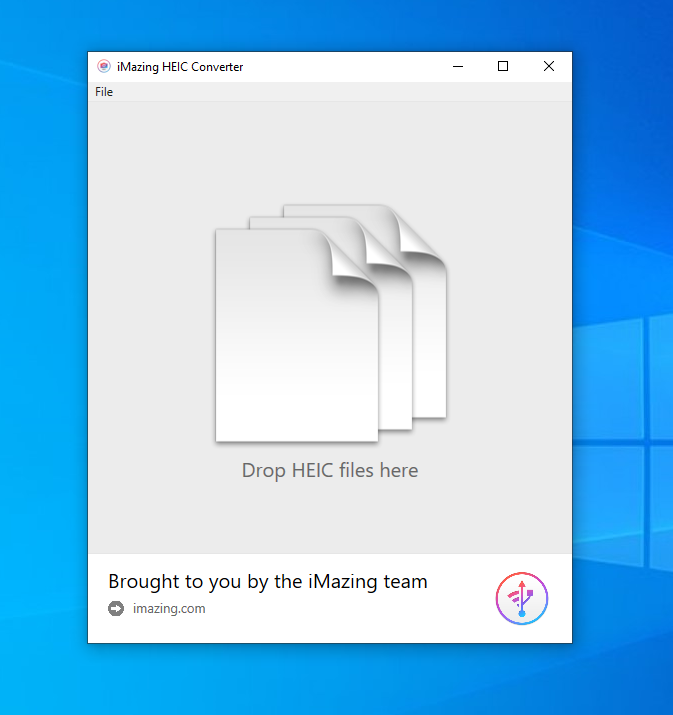

- #Open source heic converter how to#
- #Open source heic converter install#
- #Open source heic converter update#
- #Open source heic converter software#
#Open source heic converter update#
Ubuntu 19.10: There are some prominent bugs in the shipped version of libheif1, so update to the latest version available from the PPA libheif by “struktur AG” team: Open the photo via one of these image viewer/editor, then select Export to JPG (or another image format like PNG) or Save as (choose a different image format then HEIC). eog (Eye of GNOME, GIMP, Krita, GPicView. Most of the above mentioned apps support to convert a HEIC-photo, e.g. Programs/Apps to CONVERT HEIF/HEIC-pictures: Libheif-examples – provides command-line utilities: heif-convert and heif-enc. Heif-thumbnailer - a thumbnailer for HEIF images that can be used by Nautilus and Nemo. Xviewer (based on Eye of GNOME) with heif-gdk-pixbuf
#Open source heic converter software#
Kodi (free and open-source media player software application) with Add-on:HEIF image decoder GPicView (at least version 0.2.5-3), can be installed from the Software Center or directly from the project page. GThumb Image Viewer & Organizer ( 3.11.4 adds AVIF/HEIF Support), unofficial PPA for Ubuntu 18.04, Ubuntu 20.04, Ubuntu 21.04, Ubuntu 21.10, Linux Mint 20 and derivatives: sudo add-apt-repository ppa:ubuntuhandbook1/appsĭarktable, free opensource photography application and raw developer ( 3.8+) (Thanks seanlano!) - if it does not work for you, see PPA tip below. GNOME Image Viewer (Eye of GNOME - eog) is updated in Ubuntu 19.10 and later. Programs/Apps that support HEIF via libheif1 include: But see comment below with another experience. This is confirmed with this KDE announcement.
#Open source heic converter install#
This will install libheif1 and libde265-0 along.Īpparently KDE distros with KDE Frameworks 5.80 have support for HEIF and HEIC Image Formats to All KDE Apps. In a terminal run: sudo apt install heif-gdk-pixbuf

In Ubuntu 20.04: At least for eog (Eye of GNOME, GNOME Image Viewer), you have to install the package heif-gdk-pixbuf (no PPA needed). Mark Deven below says that he only needed to install libheif via aptitude to get these commands, though he didn't mention what distro he's running. You can use fuseflt or yacufs FUSE filesystems to mount your pictures folder with automated temporary cached conversion of your HEIC files so all the stock Linux desktop apps can open the HEIC files without ever knowing they're doing it. Original-Maintainer: Debian Multimedia Maintainers Sample applications using libheif are provided by this package. Image file format employing HEVC (h.265) image coding for the best compression Libheif is an ISO/IEC 23008-12:2017 HEIF file format decoder.
#Open source heic converter how to#
That message is almost as misleading as the package name, and I can easily understand given these two papercuts why so few people have figured out how to use this tool.įor anyone who doubts that this is an official Ubuntu package: :~/Desktop$ dpkg -s libheif-examplesĭepends: libheif1 (= 1.1.0-2), libc6 (>= 2.14), libgcc1 (>= 1:3.0), libjpeg8 (>= 8c), libpng16-16 (>= 1.6.2-1), libstdc++6 (>= 5.2)ĭescription: ISO/IEC 23008-12:2017 HEIF file format decoder - examples jpg or it will complain that it doesn't recognise the file format.

On Ubuntu 18.04 there's also a commandline tool to convert HEIC: sudo apt install libheif-examples On Ubuntu 18.04 you can sudo snap install gimp to get the latest version (2.10.10Ĩ as of May 2019) which can open and edit HEIC files. Then find an HEIC file in the file manager, right click, select Properties then Open With and select Image Viewer (if there's two of them, select the one with the more colourful icon) and then select Set as default (or Add if that's the only option.)Īfter that you can double-click HEIF files to view them:

On Ubuntu 20.04 Focal Fossa: $ sudo apt install heif-gdk-pixbuf heif-thumbnailer gimagereader gpicview


 0 kommentar(er)
0 kommentar(er)
